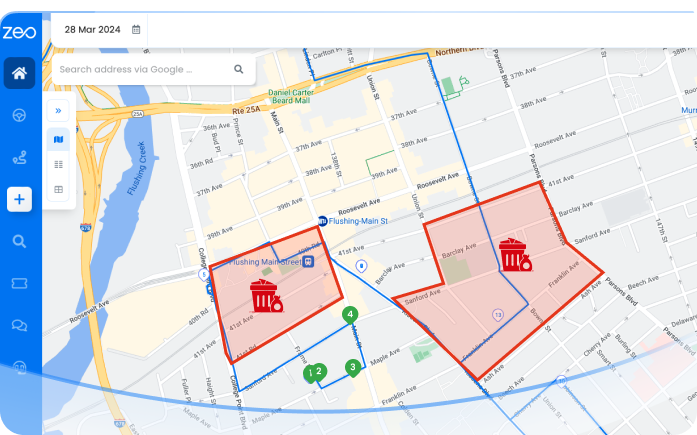








Embrace Zeo Route Planner for a stress-less way to dispatch technicians, and
track jobs, by keeping your team efficient while nurturing happy customers.


























Waste Management Software: Plan, Schedule & Dispatch
Optimize waste collection paths for efficiency and environmental compliance.

Automatically assign collection routes to drivers based on waste type and location.

Monitor waste management vehicles for timely collections and route adjustments

Allocate tasks based on driver expertise in hazardous or recyclable waste management.

Quick training for new waste management staff using intuitive apps

Tailor updates and alerts for waste collection schedules and changes.


Used by over 1.5 mn drivers across 150 countries to finish their work faster!
Explore our blog for insightful articles, expert advice, and inspiring content that keeps you informed.

Reading Time: 4 minutesThe world of banking logistics is on the brink of a major shift, and 2025 is set to be a

Reading Time: 4 minutesThe automotive logistics industry is no longer about simply moving vehicles or deliveries from point A to B, it’s a

Reading Time: 4 minutesThe most important KRA of every HVAC fleet manager is to ensure optimal performance with minimal operational cost. Managing enterprise
Follow these steps to add a stop by typing and searching:
Follow these steps to add stops in bulk using an excel file:
Follow these steps to add stops in bulk by uploading an image:
Follow these steps to add stop if you have Latitude & Longitude of the address:
Follow these steps to add stop using QR Code:
Follow these steps to delete a stop: